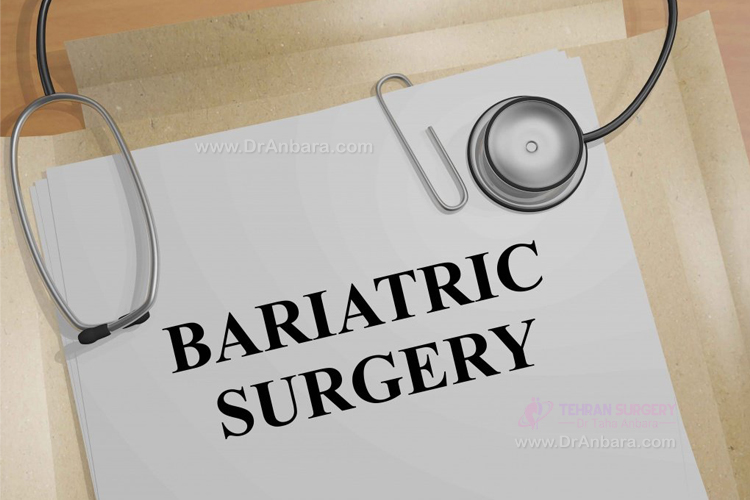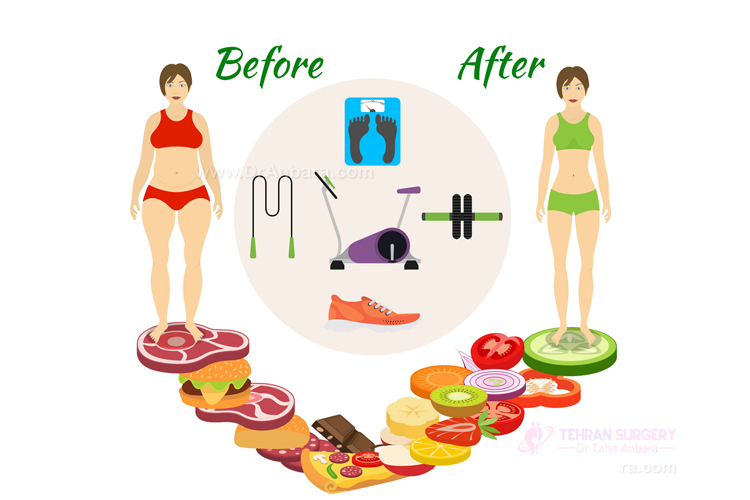Bariatric surgery guidelines

Obesity is a disease and bariatric surgery is a type of treatment for overweight people. It is a life-changing procedure which is the most durable and successful treatment for obesity and its associated metabolic complications such as high blood pressure, type 2 diabetes, sleep apnea, and heart disease.“Weight loss surgery also called bariatric surgery is minimally invasive techniques causes weight loss by limiting the amount of food the stomach can hold as well as reducing the medical health problems associated with obesity.” This article contains bariatric surgery guidelines that are helpful for people who are considering weight loss surgery.
Generally, bariatric surgery is the right option for patients with a BMI of 35 or more who have been tried non-surgical measures such as exercise and diet. It is also recommended for people with type 2 diabetes.
Weight loss surgery can effect on treating type 2 diabetes in the following ways:
- It can affect the condition of your hormones in your gut as well as how your body produces insulin
- Enhance the number of bile acids in your body that causes your body cells to be more sensitive to insulin
- Modify the way your cells use insulin and consequently lower blood sugar levels
The most common weight loss surgeries are bypass surgery, sleeve surgery, bonding surgery and biliopancreatic diversion with duodenal switch. Some of them affect how food will be digested and how nutrients will be absorbed. All weight loss surgeries are done when the patient couldn’t lose weight through exercise and food diets.
Candidates for bariatric surgery should observe three main sections of nutritional recommendation as pre-surgery diet and supplementation, post-surgery diet and lifelong diet and supplementation.
There are some risks and complications associated with bariatric surgery same as any other surgical procedure such as bleeding, infection, anesthesia risks, blockage or leaks in the bowels.
Before the bariatric surgery, the health care team will consider the following items including:
- Weight history and nutrition. Your diet attempts, exercise and eating habits, stress level, motivation, and weight trends should be reviewed.
- Psychological status. Certain mental health conditions such as eating and anxiety disorders, depression, bipolar disorder can contribute to obesity or causes difficulty for bariatric surgery procedure.
- Medical condition. Some health problems such as liver disease, kidney stones, blood clots, heart problems, and nutritional deficiencies can increase risks associated with surgery. More addition these problems can be worsened by weight loss surgery. Your healthcare team will also evaluate your medication, alcohol use, sleep apnea and whether you smoke or not.
- Age. Although there is no age limitation for having bariatric surgery the procedure is too risky for teenagers and older adults.
- Motivation. Your ability and willingness to follow recommendations, prescribed exercise and diet is very important for having a bariatric surgery that should be assessed prior to the surgery.
General diet recommendations for weight loss surgery

- Follow a low calorie, fats and sweets diet.
- Keep a daily record of what you eat and the calorie and protein intake.
- Try to eat mixed food and avoid rice, bread, raw vegetable and fruits that are not easily chewed.
- Avoid sugar-containing foods and beverages
- Eat slowly and chew small bites of food thoroughly.
- For the first two months post up the surgery, the calories intake should be between 300 to 600 per day.
- It is recommended to drink at least 2 liters of fluids per day.
- Drink extra water, low-calorie and caffeine-free fluids between meals.
- Try to eat high protein foods like fish, seafood, eggs, yogurt, and other milk products.
- Take all the prescribed supplements. Please take attention all pills must be cut or crushed into several small pieces.
- Immediately after the surgery you have just a clear liquid diet, then adding thicker liquids to your diet and gradually include soft blended and pureed foods to your diet.
- You should stop eating when you feel full.
Bariatric surgery guidelines on pregnancy and alcohol
You can have a safe and healthy pregnancy after bariatric surgery if you follow your health care team recommendations and then manage it well. If you get pregnant after the weight loss surgery, you and your baby will not face with obesity-related problems during the pregnancy such as high blood pressure, gestational diabetes and even a baby with larger birth weight. On the other hand, the chance of getting pregnant will increase after weight loss surgery for women who suffer from infertility due to obesity.
According to different researches, people who have had bariatric surgery have an increased risk of alcohol abuse. After weight loss surgery, especially bypass surgery, the blood alcohol levels rich its heights faster and also it takes longer to return to normal because of modified metabolism after gastric bypass surgery.
People who undertaken weight loss surgery, their blood alcohol level will peak above the legal drinking limit just by a single drink within few minutes, they feel dunker quicker and it also takes longer to leave the body. More addition this risk is higher for patients who have experienced alcohol abuse before the surgery at some points.




